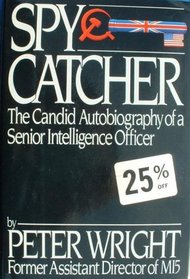Helpful Score: 1
It is fascinating to me to read this teller of events and his perceptions of the WWI and WW2 and how the spy community began. His writing style is like hearing an older man reminisce about the younger days. For me, it is like the voice over at the beginning of the movie.Soon you forget the voice or that you are reading because you fall into the prose.





